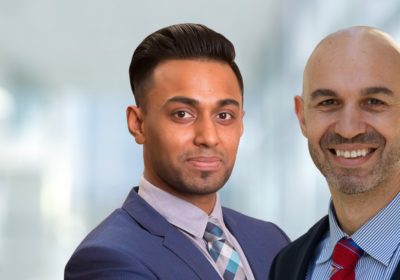
- Author: Staff Writers
- Posted: July 22, 2024
Brindha Pillay, CFO, DHL Supply Chain > Delivers Financial Leadership in First Year as CFO
DHL Supply Chain’s Australia (DHL) CFO, Brindha Pillay speaks with CFO Magazine A/NZ on how she has focused on determining the best ways to add value to the company in her first year in the role.
Pillay was appointed to the role in 2023 and harnessed experience gained from serving DHL for 15 years, rising in positions ranging from Finance Manager to Senior Vice President, Global Head of Accounting and Process Digitalisation Finance. Her previous career in medicine, a far cry from finance, also lends crucial skills which transition well to contemporary financial leadership. Brindha shares her reflections and insights on her first year in the role.
Leadership Approach
“Becoming DHL Supply Chain’s CFO has been quite a change, and a very positive one,” Brindha said.
“Coming from a global role where I was defining financial accounting strategies across our supply chain business, I am now using this experience for developing strategies and setting standards for best practices for creating and delivering value to our customers, as well as building the finance team that surrounds me.
“Australia is a large part of DHL’s global footprint and what we do here has a global impact, so Australia’s financial direction is very important to the health of the company worldwide.
“Key accounting skills and a robust control environment are necessities for any core finance function, and it is a given that these elements must be in place. Leadership, long-term strategy and building a high-performing finance team are areas where I offer much greater value, and where I am now keenly focused.”
Leading the Market
Brindha said this leadership capability is demanded by the nature of DHL business and the customers the company wishes to engage.
“It would be much easier for me if our business, which offers end-to-end supply chain warehousing and transport solutions to many household brand names, was competing on a cost-only basis,” Brindha said.
“However, we are DHL and we are focused on building long-term partnerships with our customers and offering the sustainable benefits that are synonymous with the DHL brand, such as quality of service and genuinely understanding our customers’ businesses so we can deliver better value and success.
“Sometimes it’s difficult for customers to focus on the long-term when short-term costs need to be managed, especially in the economically volatile times that we’re currently experiencing. But I am confident in our approach and all that DHL brings when we build these long-term partnerships.
“It’s been important to understand and communicate effectively to our customers that this market volatility is a part of a cycle. If we ride these cycles out, the benefit to our customers and their financial success will quickly become apparent.
“Our warehousing and transport solutions can provide technology, safety and environmental benefits that are industry leading. Our ability to analyse our customers’ volume data and help them manage their end-to-end supply and demand is of immense value to those customers with whom we have long-term relationships.”
Brindha understands that delivering value to customers is not a task that she does in isolation.
“Making DHL’s value visible to our customers is something I that work on with our CEO, Steve Thompsett, and together with the greater Executive Leadership team (ELT).
“To be truly effective in communicating our vision and strategy, it takes a great team and that is what we have in our ELT.
“There is a genuine belief in our customer relationships being most important, second only to DHL team members. This is at the heart of our DHL culture.”
Embracing Change
Proving that major career changes can be successful, Brindha began her career in her hometown of Durban in South Africa with 10 years in medicine.
“Growing up in a family of Indian descent in an apartheid country was challenging, but it shaped my determination and path to leadership. My cultural upbringing instilled the importance of family, education and an active consciousness for the people around me,” Brindha said.
However, after having her first child, Brindha decided to relocate to Australia in search of a safer place to raise a family. Identifying opportunities in finance while planning her move, Brindha completed a chartered accounting course to bring herself up to speed and to prepare herself for a career change.
This decision would allow for new beginnings in Australia while maintaining support for her family.
Brindha said that the skills she learned as a general practitioner also help her as CFO.
“Working as a doctor, your decisions are life or death. This gave me the resilience and fortitude to make important decisions in this role and to accept the responsibility for them,” she said.
“In medicine, you learn strong methodology for assessing situations quickly, taking the whole picture into account and staying calm while making difficult decisions.
“Working in finance, these skills are invaluable.”
Finance as a Changing Landscape
Among the market volatility that Brindha mentions, additional factors such as the development of AI, the new insights that data analytics provides, and a significant drop in people seeking finance qualifications, are at the forefront of the contemporary finance landscape. However, Brindha sees greater opportunities for current and prospective finance professionals.
“The world is changing and evolving and so is finance, with increased use of outsourcing, automation and AI.
“The way I see it, the profession will always remain relevant if we remain focused on the interpretation and analysis of information, to provide the necessary insights to help steer businesses.”
“As opposed to a threat, I see the influx of AI in finance as an opportunity. It’s here to help us ‘live our best finance lives’ by freeing us from the burdens of box-ticking activities and giving us the time to capitalise on our professional expertise.”
“AI is a useful tool for us to make better, more informed and more accurate financial decisions and it allows us to do exactly what we have trained to do as finance professionals.
“We have a very broad remit in finance and the uptake of these tools means we can better contribute to determining the actions of the leadership team.”
Brindha sees the combination of these factors – setting the baseline for financial success, effectively demonstrating value to customers and stakeholders, working effectively in a team and being able to make effective and methodical decisions – as the way to be an effective and influential CFO.
“Being influential is not a concern when you’re a CFO, we’re the CEO’s ‘right hand’, so we’re already in a strong position of influence,” Brindha said.
“However, determining how to leverage this influence to help steer the company is the crucial part of the role.
“Focusing on accounting, compliance and controls is part of a CFO’s role, but equally important is influencing leadership decisions by communicating unique insights gleaned from understanding both the operations and the numbers.
“For me, providing accurate insights to help steer the organisation to help determine the best solutions to problems, get things right first time, build customer relationships, set sustainable and competitive pricing and continuously challenging the team to do the best we can for our customers, that is how I demonstrate the value of the role.”








